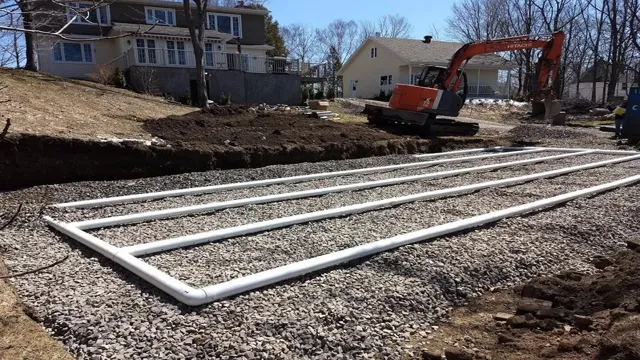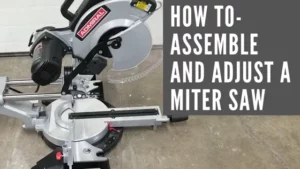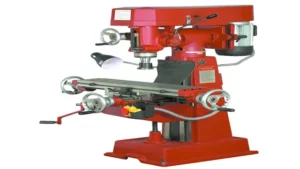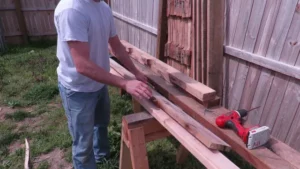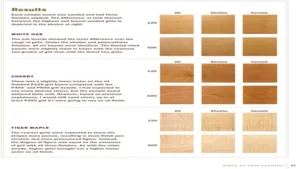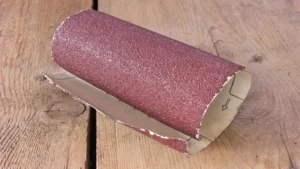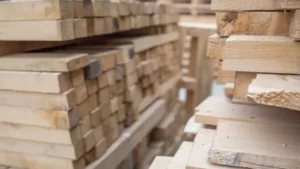Have you ever wondered if you can drive over septic lines? It’s a common question among homeowners, especially if their septic tank is located in their driveway or near their parking area. While it may seem like a harmless act, driving over septic lines poses a significant risk, both for your septic system and your wallet. Septic systems rely on a network of underground pipes to transport wastewater from your home to the septic tank.
These pipes can be damaged or crushed if they’re exposed to excessive weight or pressure. Once damaged, wastewater can leak into the surrounding soil, contaminating your property and causing expensive repair bills. In this blog, we’ll dive into the dangers of driving over septic lines and explore ways to protect your septic system.
From understanding the signs of a damaged septic line to learning how to avoid common mistakes, this guide will provide you with the knowledge you need to keep your septic system in top shape. So the next time you’re tempted to drive over your septic lines, remember the potential risks and take the necessary precautions to keep your septic system healthy.
What are Septic Lines?
Septic lines are an essential component of a septic system that helps remove waste from your property. They are often buried beneath the ground and consist of perforated pipes that facilitate the dispersal of liquid waste into the surrounding soil. However, one important question that many homeowners ask is whether or not you can drive over septic lines.
The answer to this question depends on a few factors, including the type of septic system you have, the location of the septic lines on your property, and the weight of the vehicle. Generally, smaller vehicles like cars and trucks are unlikely to cause damage to septic lines. Still, heavy equipment like construction vehicles or RVs could pose a problem and should be avoided.
Remember, damage to your septic system can result in costly repairs, so it’s always better to be safe than sorry.
Definition and Function
Septic lines are essential for ensuring the proper functioning of septic systems. These lines are designed to carry wastewater from the septic tank into the drain field, where it can be safely absorbed into the soil. Septic lines can be made of various materials, such as PVC or clay, and can be installed in a number of different configurations to accommodate the specific needs of the septic system.
The primary function of these lines is to transport wastewater away from the septic tank and into the drain field where it can be treated by naturally occurring bacteria in the soil. Without properly functioning septic lines, wastewater can back up into the septic tank or overflow onto the ground, which can cause health hazards and damage to the environment. Regular maintenance is necessary to ensure that septic lines continue to function properly, and homeowners should take steps to avoid clogs and blockages that can impede the flow of wastewater.
Overall, septic lines are a crucial component of a septic system, helping to ensure that wastewater is safely and effectively treated before returning to the environment.

Locating Septic Lines in Your Property
Septic lines are an essential part of any septic system. These lines are responsible for transporting wastewater from your home’s plumbing and pumping it into a septic tank for treatment. They are typically buried underground, making them difficult to locate without the proper tools and knowledge.
However, it is crucial to know where these lines are located if you want to maintain your septic system’s function properly. One way to locate them is to look for the septic tank’s access lid, which is usually positioned just above it. From there, you can use a probing tool or a metal detector to trace the lines and map out their path.
It’s crucial to remember that septic lines are fragile and can easily be damaged, so it’s best to leave the digging to the professionals to avoid any issues. If you suspect any damage or blockage in your septic lines, it’s best to seek professional assistance immediately before the problem worsens.
The Risks of Driving Over Septic Lines
If you are a homeowner with a septic tank, you may be wondering if it is safe to drive over the septic lines. While it may seem like a harmless act, driving over septic lines can cause serious damage and potentially lead to costly repairs. Septic lines are designed to carry waste from your home to the septic tank and are typically buried a few feet underground.
Driving over these lines can cause the ground to shift, potentially cracking or breaking the pipes. This can lead to leaks and sewage backups, which can be hazardous to your health and the environment. It’s important to avoid driving over your septic lines whenever possible to prevent any damage.
If you need to drive over the lines, be sure to do so carefully and only in emergency situations.
Damage to the Septic System
Driving over septic lines can cause severe damage to your septic system, which can be costly to repair. Cracks, breakages, and punctures can occur, leading to wastewater leaks and sewage backups. In addition, heavy machinery or vehicles can easily crush septic pipes and tanks, resulting in a complete system failure.
It is essential to avoid parking or driving on your septic system and ensuring that the location of your septic system is clearly marked. Also, keep in mind that any landscaping or tree planting above your septic system can cause root damage, leading to even more significant issues. Overall, it’s essential to take proper care of your septic system and avoid the potential risks of driving or parking over septic lines.
Contamination of Groundwater and Soil
Driving over septic lines can put both the environment and homeowners at risk. Septic lines are responsible for transporting wastewater from homes and buildings to the septic tank or treatment facility. When these lines are damaged or cracked, the wastewater can leak out and contaminate the soil and groundwater.
This can be dangerous for both humans and animals, as this contaminated water can carry harmful bacteria and pathogens. Additionally, repairing damaged septic lines can be costly and time-consuming, causing inconvenience for homeowners. Therefore, it’s important to take precautions and avoid driving over septic lines.
If it is necessary to do so, make sure to drive slowly and carefully to prevent any damage. It’s also important to have regular maintenance and inspections to ensure that septic lines are in good condition and functioning properly. By taking these precautions, homeowners can keep their families safe and protect the environment from contamination.
Costly Repairs and Cleanup
When it comes to septic systems, many homeowners don’t realize the risks of driving over the lines. Doing so can cause major damage to the system, resulting in costly repairs and cleanup. Imagine accidentally driving over a septic line and causing a rupture.
Not only will the contents of the tank spill out, but it could also contaminate nearby soil and water sources. Plus, the cost of repairing or replacing a damaged septic line can quickly add up. It’s important to be mindful of the location of your septic system and avoid driving vehicles over the lines whenever possible.
By taking a proactive approach to protecting your septic system, you can save yourself from the headache and expense of dealing with a major repair.
Alternatives to Driving Over Septic Lines
Can you drive over septic lines? The short answer is no. While septic pipes are buried underground and therefore may seem sturdy enough to withstand the weight of a vehicle, the truth is that they can easily crack or break under the pressure. Not only can this damage your septic system, but it can also lead to sewage spills and other unpleasant consequences.
So, what are your alternatives to driving over your septic lines? The easiest solution is to reroute your driveway or parking area. This may require some excavation work and a bit of extra expense, but it’s well worth it in the long run to protect your septic system from damage. Additionally, you can install a septic-safe driveway made from materials that are less likely to cause damage to your septic system, such as gravel or pavers.
Whatever you choose, it’s important to prioritize the health and longevity of your septic system in order to avoid costly repairs and maintenance down the line.
Re-routing the Driveway
If you’re planning to re-route your driveway, it’s essential to think about the septic system and find alternatives to driving over the lines. Burying or driving over septic lines can cause damage, leading to leaks and expensive repairs. There are plenty of options for rerouting your driveway, such as creating a new property entrance, adding a circular drive, or extending the driveway to another area of the house.
A new property entrance can offer better accessibility, privacy, and safety. A circular drive can provide an elegant entrance, and extending the driveway can offer more space for parking while avoiding the septic lines. Before making any significant changes, consult with a professional septic system inspector to ensure that your new driveway doesn’t affect the septic system’s function.
Overall, rerouting the driveway can offer various benefits, but it’s essential to prioritize the septic system’s health and function to avoid costly repairs.
Installing a Bridge or Culvert
When it comes to crossing over septic lines on your property, there are some alternatives to driving over them that can prevent damage and keep your system functioning properly. Installing a bridge or culvert is a great option that allows you to pass over the lines without putting pressure on them. A bridge is a raised structure that spans a gap, while a culvert is a drainage structure that allows water to pass through.
Both of these options distribute the weight of vehicles evenly and prevent erosion around the septic lines. Plus, they can add an attractive element to your property while ensuring safety and longevity for your septic system. So, instead of risking damage to your system by driving over the lines, consider installing a bridge or culvert to maintain the integrity of your septic system.
Conclusion: Avoid Driving Over Septic Lines
In conclusion, while it may seem tempting to plow over your septic lines with your new monster truck, it’s not a good idea. Not only could it cause a costly and smelly mess, but it’s also illegal in most places. Remember, just because you can drive over something doesn’t mean you should.
So leave the septic lines alone and stick to the open road. Trust us, your nose (and your wallet) will thank you in the long run.”
FAQs
What are septic lines and how do they work?
Septic lines are drainage pipes that carry wastewater from a septic system to the drain field. The septic tank processes solid waste while the effluent flows through the lines and is filtered into the ground.
Can you drive over septic lines?
It is not recommended to drive or place heavy equipment over septic lines as it can cause them to crack or collapse, leading to costly repairs.
What are the signs of a damaged septic line?
Signs of a damaged septic line include slow drainage, foul odors, and sewage backups in the home. In addition, patches of lush green grass or standing water near the drain field can also indicate a problem.
How long do septic lines typically last?
Depending on factors like soil type and maintenance, septic lines can last anywhere from 25 to 50 years. Regular pumping and inspections can extend their lifespan.
Can a septic line be repaired or does it need to be replaced?
Small cracks or leaks in the septic lines can often be repaired, but major damage will require replacement of the affected section or the entire line. A professional septic service should be consulted to determine the best course of action.
Is it safe to plant trees or shrubs near septic lines?
Depending on the type of plants and distance from the septic system, planting trees or shrubs near septic lines can be safe. However, planting too close can damage the lines or block the drain field.
How can I maintain my septic lines to prolong their lifespan?
Regular pumping every 3-5 years, avoiding flushing non-biodegradable items like wipes and sanitary products, and reducing water usage can all help maintain septic lines and prolong their lifespan.
